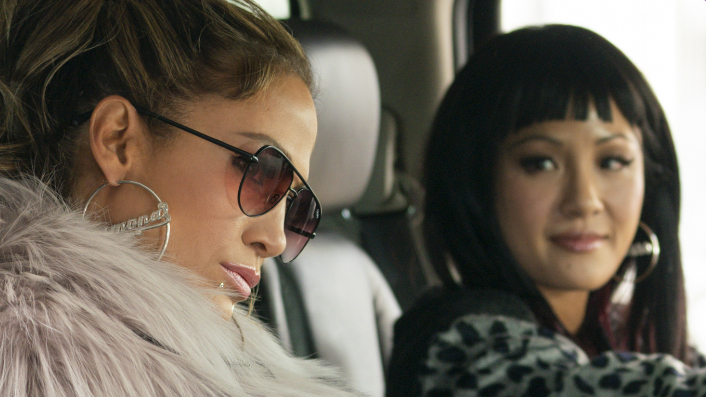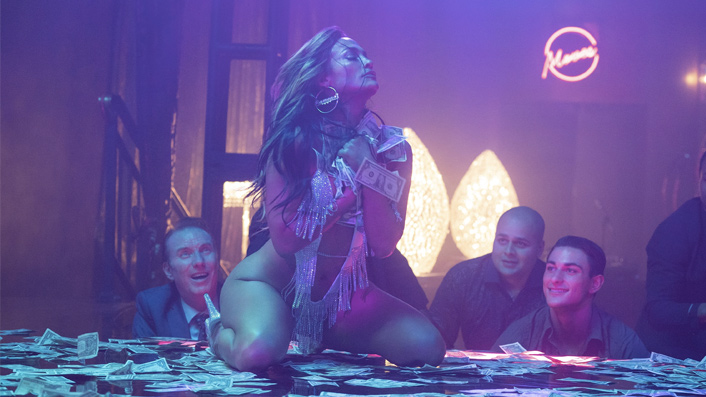Hustlers is a winning crime drama featuring a defining Jennifer Lopez performance

The real life story of the performers from a New York strip club who started fleecing their Wall Street clients boasts a defining performance from Jennifer Lopez while uncovering complex relationships, writes critic Craig Mathieson.
As Ramona Vega, a New York stripper whose ambitions result in illegalities, Jennifer Lopez isn’t just alluring, she’s also armoured. Introduced publicly dancing to Fiona Apple’s ‘Criminal’, and then privately reclining in a fur coat on a rooftop like a goddess on a cigarette break, she is a force of nature. Ramona’s walk is imperious, her gaze unbroken. It’s enough to leverage whoever is watching, whether it’s the film’s audience or its protagonist, Destiny (Constance Wu), a neophyte trawling from table to table who looks at Ramona with quiet awe and soon eagerly becomes her apprentice.

When they first meet in 2007, at a prominent Manhattan strip club, Destiny is already supporting her grandmother, and like Ramona will become a single mother. The fathers, soon to be absent, are like their clients: interchangeable. Lorene Scafaria’s film hews to female characters, professionally and personally. It is a deceptively complex portrayal, putting aside stripper clichés and discarding the camera’s lustfulness, because there’s never a simply connection between the two women. They are friend, colleagues, collaborators in crime, and eventually co-indicted, and one quality never erases any of the others.
Based on The Hustlers at Scores, a vivid 2015 New York magazine article by Jessica Pressler, Hustlers is about personal connection in a transactional world. The backstage scenes of the working women – juiced by musicians Cardi B and Lizzo in supporting roles – establish a genuine camaraderie, but they need the money of Wall Street’s men to make a living, something both sides know; “follow the green brick road,” as Ramona puts it. When Lehman Brothers capsizes in 2008, metastasising the Global Financial Crisis, the women have to adapt. Ramona’s solution, which Destiny acquiesces too, is to reel in clients and drug them before running up their corporate credit cards and splitting the take.

The application of strength, whether professionally (1998’s Out of Sight) or as a survival mechanism (2002’s Enough), has always been central to Lopez’s best performances, which made her years of pursuing mainstream romantic comedies a dead end. Ramona is the most complete performance she’s given, revealing an assurance that can never quite be ruthless. “That’s stolen money,” she reasons, given that the architects of the recession haven’t been punished for their crimes, but the movie doesn’t adhere to the form of a crime movie. It’s about a crime family where the focus is family – Ramona keeps mothering strays, while Destiny finds satisfaction in her maternal leadership.
In the same way that the lighting and sound change dramatically from one room to the next, the film’s mood adapts to the hopes of these women. Success makes them take too many risks, but even as they finally catch the eye of law enforcement – many of their marks could cover the late-night withdrawals or were too embarrassed to contact police – there’s no cold-blooded retribution to cover their tracks. Hustlers doesn’t accelerate to a finish, it coasts, as if the warm air that keeps them gliding aloft has dissipated. It’s not just a gender flip, it runs deeper and truer with pop music and period leisurewear as emblems. If there’s one thing this film knows, it’s that not everyone can keep avoiding paying the bill.

















